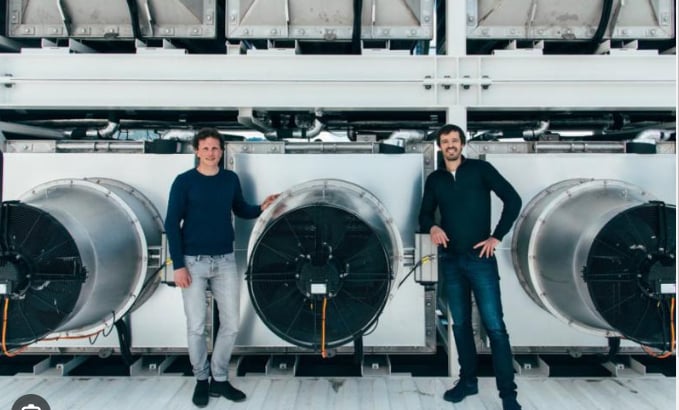June 18, 2025 | 10:18 GMT +7
June 18, 2025 | 10:18 GMT +7
Hotline: 0913.378.918
June 18, 2025 | 10:18 GMT +7
Hotline: 0913.378.918

Transforming carbon dioxide into fertilizer is now possible: the operational facility is in Switzerland
The food system is at a pivotal moment: The agriculture sector has a massive carbon footprint, and the extreme weather caused by climate change is making farming more difficult. But the problems are also driving technological innovation in the industry, from solar-powered, robotic farm equipment to the world’s first vaccine designed for bees.
Aigen
For taking robotic farming off the gridAigen‘s robotic weeding machine is designed to make it possible for farmers to avoid using expensive, unsustainable herbicides. As the robot rolls down a row of crops, it uses AI to recognize and uproot weeds and analyze crop data. Unlike other robotic farming equipment, it doesn’t require fuel or recharging. A solar panel on the top provides most of the power, doubling as a sail that can capture wind energy. The wheels also have regenerative motors that capture more energy.
Dalan Animal Health
For creating the first honeybee vaccineBees face multiple stresses, from climate change to pesticides. Last winter, beekeepers in the U.S. lost around half of their hives. Dalan Animal Health is focused on one challenge—a highly contagious disease called foulbrood that threatens bees worldwide. The company developed the first-ever vaccine for bees, which is given to a queen bee to pass on to her offspring. After nabbing a conditional license from the FDA in late 2022, Dalan started piloting the vaccine with thousands of hives.
Windfall Bio
For transforming carbon pollution into fertilizerFarming is a major source of methane, a potent greenhouse gas (cow burps, we’re looking at you). But Windfall Bio has found a novel way to make use of the pollution. By boosting natural methane-eating microbes in the soil, it’s possible to capture methane from the air and put it to work as organic fertilizer for crops. That helps solve a second climate challenge: Synthetic fertilizer is typically made from fossil fuels and has a large carbon footprint itself.
(FC)

(VAN) Extensive licensing requirements raise concerns about intellectual property theft.

(VAN) As of Friday, a salmonella outbreak linked to a California egg producer had sickened at least 79 people. Of the infected people, 21 hospitalizations were reported, U.S. health officials said.

(VAN) With the war ongoing, many Ukrainian farmers and rural farming families face limited access to their land due to mines and lack the financial resources to purchase needed agricultural inputs.

(VAN) Vikas Rambal has quietly built a $5 billion business empire in manufacturing, property and solar, and catapulted onto the Rich List.

(VAN) Available cropland now at less than five percent, according to latest geospatial assessment from FAO and UNOSAT.

(VAN) Alt Carbon has raised $12 million in a seed round as it plans to scale its carbon dioxide removal work in the South Asian nation.

(VAN) Attempts to bring down the price of the Japanese staple have had little effect amid a cost-of-living crisis.